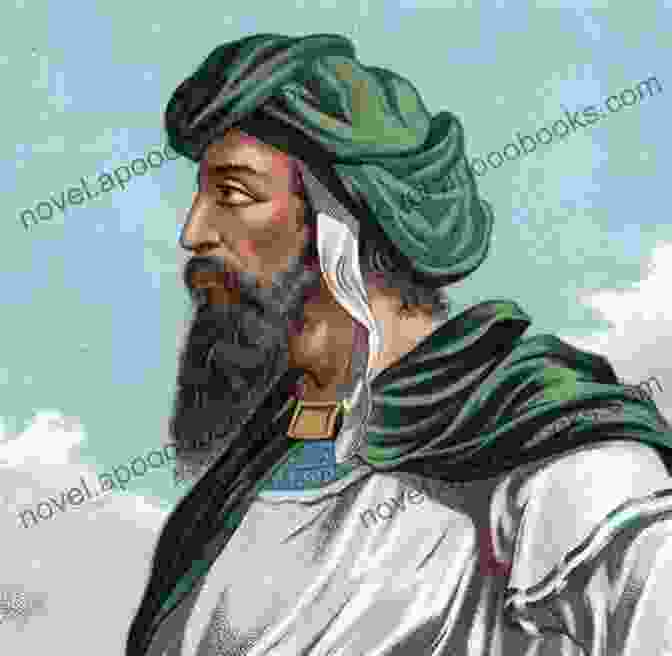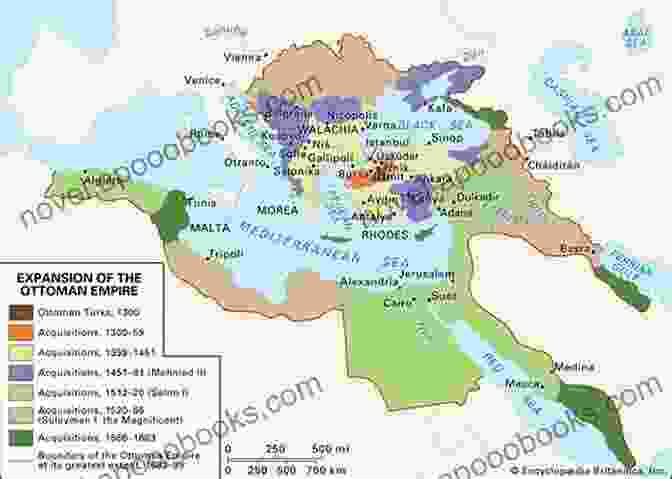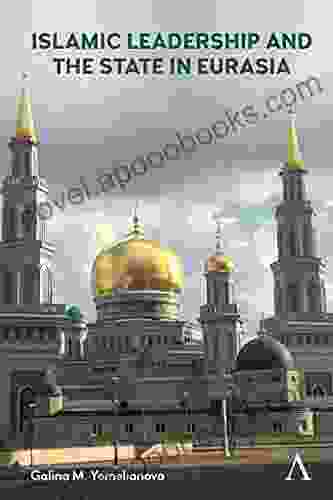Islamic Leadership and the State in Eurasia: A Journey Through History and Influence

Embark on an extraordinary journey through the annals of Islamic leadership and its profound impact on the political landscape of Eurasia. From the rise of mighty empires to the shaping of nations, this comprehensive article delves into the intricate relationship between religion and governance, shedding light on the pivotal role of Islamic leaders in shaping the destinies of nations and shaping the course of history.
The Dawn of Islamic Leadership: Laying the Foundation
The advent of Islam in the 7th century marked a transformative moment in the history of Eurasia. With the rise of the Prophet Muhammad and the establishment of the first Islamic state in Medina, the seeds were sown for a new era of leadership and governance. Islamic principles of justice, equality, and compassion became the guiding principles of Muslim rulers, shaping their approach to statecraft and their relationship with their subjects.
4 out of 5
| Language | : | English |
| File size | : | 9330 KB |
| Text-to-Speech | : | Enabled |
| Screen Reader | : | Supported |
| Enhanced typesetting | : | Enabled |
| Print length | : | 286 pages |

Eurasian Empires: The Zenith of Islamic Rule
Over the centuries, Islamic leadership flourished in Eurasia, giving birth to some of the most powerful and influential empires in history. The Umayyad Caliphate, the Abbasid Caliphate, the Ottoman Empire, the Mughal Empire, and the Safavid Empire all emerged as beacons of Islamic civilization, their rulers leaving an enduring legacy on the political, cultural, and economic landscape of the region.

Islamic Leadership in Practice: Principles and Policies
Islamic leadership was guided by a unique set of principles and policies that shaped the way Muslim rulers governed their domains. These principles included:
- Shura (Consultation): Islamic leaders were expected to consult with their advisors and subjects before making important decisions.
- Adl (Justice): Justice was a cornerstone of Islamic rule, with rulers striving to ensure fairness and equality for all citizens.
- Aman (Security): The safety and well-being of citizens was a top priority for Islamic rulers.
- Khilāfah (Successorship): The succession of leadership was typically based on a combination of hereditary and meritocratic principles.
The Role of Islamic Law in Shaping Governance
Islamic law played a significant role in shaping the governance of Muslim empires. The Quran, the sacred text of Islam, and the Sunnah, the sayings and actions of the Prophet Muhammad, provided guidance on various aspects of government, including the rights and responsibilities of rulers and the administration of justice.

The Legacy of Islamic Leadership: Enduring Influence
The legacy of Islamic leadership in Eurasia continues to resonate today. The principles and practices developed by Muslim rulers have had a lasting impact on political systems and governance models throughout the region. The concept of consultation, the pursuit of justice, and the importance of security remain fundamental values in many modern-day states.
, the history of Islamic leadership and the state in Eurasia is a tapestry of power, influence, and enduring legacy. From the dawn of Islam to the rise and fall of mighty empires, Islamic leaders have played a pivotal role in shaping the political, cultural, and economic landscape of Eurasia. Their principles and practices continue to influence governance models and guide the aspirations of leaders and nations to this day.
4 out of 5
| Language | : | English |
| File size | : | 9330 KB |
| Text-to-Speech | : | Enabled |
| Screen Reader | : | Supported |
| Enhanced typesetting | : | Enabled |
| Print length | : | 286 pages |
Do you want to contribute by writing guest posts on this blog?
Please contact us and send us a resume of previous articles that you have written.
 Book
Book Novel
Novel Page
Page Chapter
Chapter Text
Text Story
Story Genre
Genre Reader
Reader Library
Library Paperback
Paperback E-book
E-book Magazine
Magazine Newspaper
Newspaper Paragraph
Paragraph Sentence
Sentence Bookmark
Bookmark Shelf
Shelf Glossary
Glossary Bibliography
Bibliography Foreword
Foreword Preface
Preface Synopsis
Synopsis Annotation
Annotation Footnote
Footnote Manuscript
Manuscript Scroll
Scroll Codex
Codex Tome
Tome Bestseller
Bestseller Classics
Classics Library card
Library card Narrative
Narrative Biography
Biography Autobiography
Autobiography Memoir
Memoir Reference
Reference Encyclopedia
Encyclopedia Sean Mcfate
Sean Mcfate Sir Reed A Lott
Sir Reed A Lott Nora Abousteit
Nora Abousteit United States Government Us Army
United States Government Us Army Radclyffe Hall
Radclyffe Hall Yonas Gorfe
Yonas Gorfe Rod Ker
Rod Ker Patti Trickett
Patti Trickett R Duncan Luce
R Duncan Luce Parris Afton Bonds
Parris Afton Bonds Percy Bysshe Shelley
Percy Bysshe Shelley Oliver L North
Oliver L North Patricia Mclinn
Patricia Mclinn Olga Oliker
Olga Oliker Patrick M Whitehead
Patrick M Whitehead Paul Schullery
Paul Schullery Paul Berry
Paul Berry Parallax Press
Parallax Press Orhan Pamuk
Orhan Pamuk Rebecca Connolly
Rebecca Connolly
Light bulbAdvertise smarter! Our strategic ad space ensures maximum exposure. Reserve your spot today!

 Gerald BellSuite No Major Mozartiana Op 61 Eulenburg Studienpartituren: A Journey into...
Gerald BellSuite No Major Mozartiana Op 61 Eulenburg Studienpartituren: A Journey into...
 Vince HayesDive Deep into the Rhythmic Heart of Jazz: Standard Lines Jazz Standard Bebop...
Vince HayesDive Deep into the Rhythmic Heart of Jazz: Standard Lines Jazz Standard Bebop...
 Fernando PessoaFireflies, Family Ties, South Carolina Sunsets: A Captivating Journey of...
Fernando PessoaFireflies, Family Ties, South Carolina Sunsets: A Captivating Journey of... Samuel WardFollow ·7.8k
Samuel WardFollow ·7.8k Dillon HayesFollow ·14.2k
Dillon HayesFollow ·14.2k Hudson HayesFollow ·17.4k
Hudson HayesFollow ·17.4k Hector BlairFollow ·11.9k
Hector BlairFollow ·11.9k Brennan BlairFollow ·8.6k
Brennan BlairFollow ·8.6k Dalton FosterFollow ·2k
Dalton FosterFollow ·2k Victor HugoFollow ·8.9k
Victor HugoFollow ·8.9k Eliot FosterFollow ·4.5k
Eliot FosterFollow ·4.5k

 Shaun Nelson
Shaun NelsonUnlocking the Intricate Nexus: The Globalization and the...
In an era marked by...

 Robin Powell
Robin PowellLast Summer at the Golden Hotel: A Captivating Journey of...
Synopsis: A Transformative Summer at...

 Gabriel Mistral
Gabriel MistralContracts And Conmen In Europe Scramble For Africa
The late 19th and early...

 Glenn Hayes
Glenn HayesThe Story of the United States' Longest Wildcat Strike: A...
Prologue: The...

 Evan Hayes
Evan HayesBritain Empire Resistance Repression And Revolt:...
: The Tapestry of...

 Eddie Bell
Eddie BellGreen's Operative Hand Surgery: The Ultimate Guide for...
Green's Operative Hand Surgery is the...
4 out of 5
| Language | : | English |
| File size | : | 9330 KB |
| Text-to-Speech | : | Enabled |
| Screen Reader | : | Supported |
| Enhanced typesetting | : | Enabled |
| Print length | : | 286 pages |






